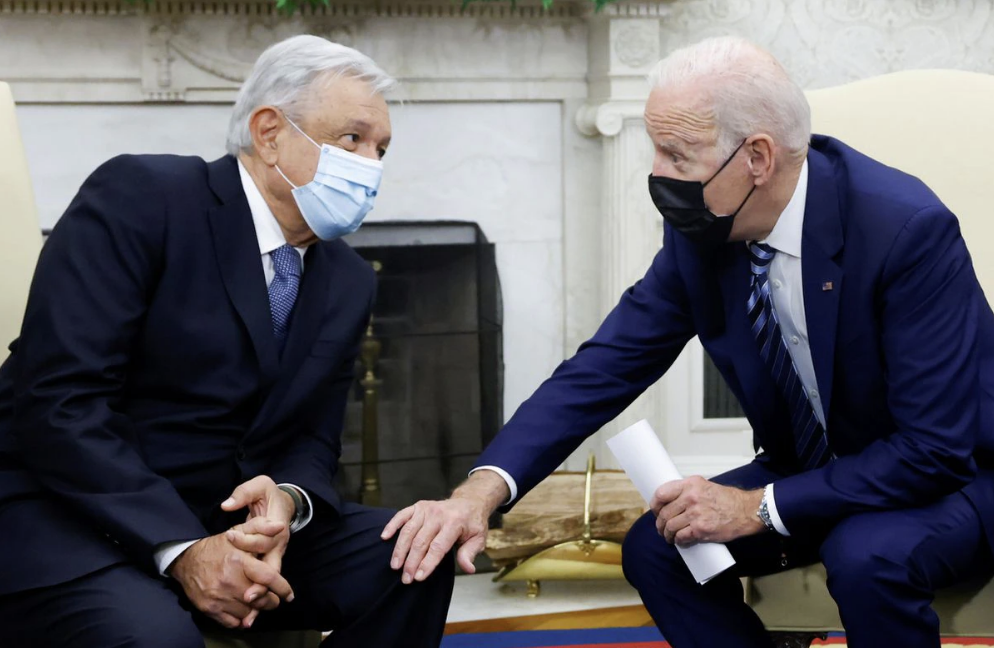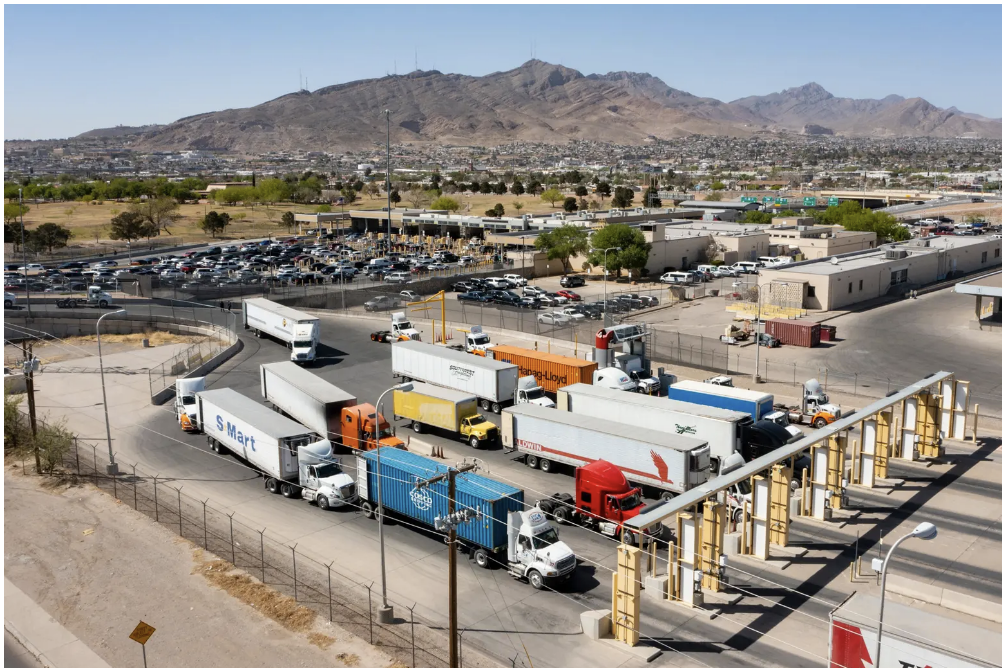Biden Discusses Immigration, Supply-Chain Issues With President López Obrador of Mexico
President Joe Biden in the Oval Office with Mexican President Andrés Manuel López Obrador in November, 2021. Photo: Jonathan Ernst / Reuters
President Biden spoke with Mexican President Andrés Manuel López Obrador on Friday to discuss ongoing challenges faced by the two countries. In a statement released by the White House prior to the virtual meeting, Press Secretary Jen Psaki claimed that the two sides intended to discuss “cooperation on migration, joint development efforts in Central America, competitiveness and economic growth, security, energy, and economic cooperation.”
The call was planned in anticipation of the June Summit of the Americas, as well as to address the imminent repeal of Title 42, the Trump-era public health rule that allowed fast-tracked deportation of migrants arriving in the U.S. on the grounds of the COVID-19 pandemic.
Since the decision of a federal judge to rescind Title 42 just days before the call took place, Mexican officials have expressed concern that the move will encourage further spikes in illegal border crossings. They call for Washington to increase their efforts to mitigate the unintended consequences of Title 42’s repeal, which will go into effect on May 23.
Commercial trucks awaiting inspection at the US-Mexico border in April, 2022. Photo: Ivan Pierre Aguirre / The Texas Tribune
The two leaders also discussed the new rule issued last month by Greg Abbott, the Republican Governor of Texas, that ordered the search of every commercial truck crossing the southern border into his state. The inspections, which Abbott instituted because he believed Biden was not doing enough to address illegal migration from Mexico, caused delays of several hours at the crossing, and reportedly inflicted serious damage on trade.
Mexican truckers responded with protests, blocking the Pharr-Reynosa International Bridge. This gridlock, combined with the accusation of extortion levied against Abbott by Mexican Foreign Minister Marcelo Ebrard, forced the Governor to abandon the rule after coming to an agreement on additional border protections with his counterpart in the Mexican state of Nuevo León.
However, Abbott’s actions may continue to harm trade between his state and Mexico, as the Mexican government has decided to move its planned railway project, connecting the Pacific port of Mazatlán to the Canadian city of Winnipeg, from Texas to New Mexico. The decision may cost the Texas economy billions of dollars. Commenting on the decision, Mexican Economy Minister Tatiana Clouthier said, “We can’t leave all the eggs in one basket and be hostages to someone who wants to use trade as a political tool”.
Presidents Biden and López Obrador also discussed Ukraine, with the Biden administration continuing to encourage Mexico to join the U.S. and its allies in issuing sanctions against Russia following its invasion of the country. While Mexico condemned the invasion, they refused to join the General Assembly vote to suspend Russia from the UN’s human rights body. A senior Biden administration official claimed that while the U.S. and Mexico have “inevitably different approaches,” they share a “common vision” that Russia’s attack on Ukraine was unjustified.
Following the meeting, Psaki claimed the tone of the call had been “very constructive,” and called President López Obrador an “important partner” to President Biden. The Mexican president himself commented on Monday that his conversation with Biden had been “very good,” but reiterated the need for continued U.S. investment in Central America. Biden and López Obrador will celebrate the 200th anniversary of U.S.-Mexico diplomatic relations this December.


